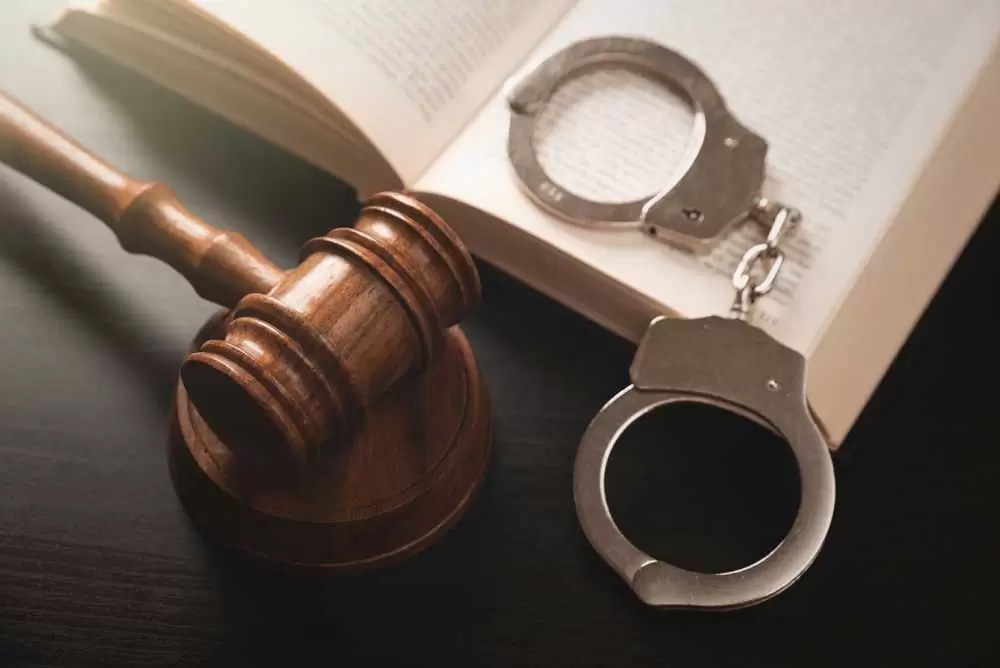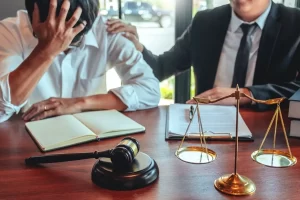Being charged with a misdemeanor can be a daunting experience. Whether it’s a small, seemingly insignificant offense or something that carries more weight, the consequences can still be impactful. The potential for fines, jail time, or a criminal record can significantly affect your life and future opportunities. If you find yourself facing misdemeanor charges, a misdemeanor law firm can be a vital resource in helping to minimize the penalties you may face. In this blog post, we’ll explore how such a law firm can help mitigate your consequences, ensuring the best possible outcome in your case.
Understanding Misdemeanors
 Before diving into the benefits of hiring a misdemeanor law firm, it’s important to understand what constitutes a misdemeanor and how these offenses differ from felonies. Misdemeanors are generally considered less serious criminal offenses and are typically punishable by less severe consequences. These can include minor drug offenses, petty theft, disorderly conduct, or simple assault. While misdemeanors may not carry the same weight as felonies, they can still lead to significant penalties, including fines, probation, and sometimes even jail time, depending on the severity of the offense and the specific circumstances surrounding it.
Before diving into the benefits of hiring a misdemeanor law firm, it’s important to understand what constitutes a misdemeanor and how these offenses differ from felonies. Misdemeanors are generally considered less serious criminal offenses and are typically punishable by less severe consequences. These can include minor drug offenses, petty theft, disorderly conduct, or simple assault. While misdemeanors may not carry the same weight as felonies, they can still lead to significant penalties, including fines, probation, and sometimes even jail time, depending on the severity of the offense and the specific circumstances surrounding it.
The Role of a Misdemeanor Law Firm
A misdemeanor law firm specializes in handling cases involving misdemeanor offenses. These firms employ experienced attorneys who are well-versed in criminal law and understand the nuances of misdemeanor charges. Their primary goal is to minimize the penalties their clients face, and they use various legal strategies to do so.
One of the first ways a misdemeanor law firm can assist is by offering a comprehensive evaluation of your case. They will review the details surrounding your arrest and charge to determine if any errors were made during the process. If there is evidence of police misconduct or violations of your rights, your attorney can challenge the evidence presented against you, potentially leading to a dismissal or reduction of charges.
Negotiating Plea Deals
In many misdemeanor cases, the prosecution may offer a plea deal. This is an agreement in which the defendant pleads guilty to a lesser charge or agrees to a specific penalty in exchange for a reduced sentence. However, negotiating a favorable plea deal can be complex and requires a thorough understanding of the law and the potential consequences.
A misdemeanor law firm’s attorneys are adept at negotiating plea deals that minimize the penalties you may face. They will assess the prosecution’s offer and determine whether it is in your best interest to accept or whether further negotiation is necessary. With their expertise, your lawyer can often secure a reduction in charges, a lighter sentence, or alternative penalties such as community service or probation instead of jail time.
Presenting a Strong Defense
In some cases, fighting the charges may be the best course of action. Misdemeanor law firms specialize in creating strong defenses for their clients. Attorneys can investigate your case, question witnesses, and gather evidence to disprove the prosecution’s claims. A well-prepared defense can lead to reduced charges or, in some cases, a full acquittal.
There are various defenses available to those facing misdemeanor charges, and a seasoned attorney will know how to leverage the most effective ones for your specific case. For instance, if you were charged with a theft-related offense, your attorney might present evidence showing that there was no intent to steal or that the property was returned promptly. Similarly, if you were accused of assault, your attorney could argue self-defense or challenge the credibility of the victim’s account of the events.
Minimizing Sentences through Mitigating Factors
 In some misdemeanor cases, the penalty can be lessened based on mitigating factors. These factors might include a clean criminal record, the circumstances surrounding the crime, or your level of remorse. A misdemeanor law firm can help present these factors in the best possible light to secure a reduced sentence.
In some misdemeanor cases, the penalty can be lessened based on mitigating factors. These factors might include a clean criminal record, the circumstances surrounding the crime, or your level of remorse. A misdemeanor law firm can help present these factors in the best possible light to secure a reduced sentence.
For example, if you have no prior criminal history, your attorney will emphasize this in an attempt to show that you are not a repeat offender. If the offense was a one-time lapse in judgment, your lawyer may highlight your willingness to take responsibility for your actions and participate in rehabilitation programs. These efforts can demonstrate to the court that you are unlikely to reoffend, which may result in a more lenient penalty.
Expungement and Record Sealing
Even after serving your sentence, a misdemeanor conviction can have long-lasting effects, particularly when it comes to securing employment or housing. However, depending on the jurisdiction and the nature of the offense, it may be possible to have your misdemeanor conviction expunged or sealed. Expungement means that the record of your conviction is essentially erased, while sealing means that it is hidden from public view.
A misdemeanor law firm can assist you in navigating the expungement process. They can determine if you are eligible and help you submit the necessary paperwork to request the removal or sealing of your record. This is a valuable service, as having a clean record can greatly improve your prospects moving forward.

 The first step in preparing for trial is understanding the legal process that will unfold. Criminal trials typically follow a set procedure that includes pre-trial motions, jury selection, opening statements, witness testimonies, cross-examinations, closing arguments, and finally, the verdict. Having a clear understanding of this process will help alleviate some of the uncertainty and stress associated with a trial.
The first step in preparing for trial is understanding the legal process that will unfold. Criminal trials typically follow a set procedure that includes pre-trial motions, jury selection, opening statements, witness testimonies, cross-examinations, closing arguments, and finally, the verdict. Having a clear understanding of this process will help alleviate some of the uncertainty and stress associated with a trial. While your goal may be to win the case outright, it’s important to understand that there are various potential outcomes, including a guilty verdict, acquittal, or even a plea deal before trial. Discuss these possible outcomes with your lawyer so you are prepared for any eventuality.
While your goal may be to win the case outright, it’s important to understand that there are various potential outcomes, including a guilty verdict, acquittal, or even a plea deal before trial. Discuss these possible outcomes with your lawyer so you are prepared for any eventuality.